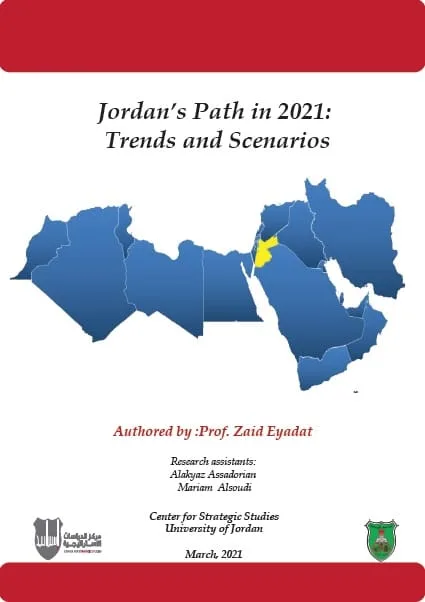In an increasingly complex region, Jordan, for decades an oasis of stability, has carved for itself a moderating and stabilizing role in a region that is often viewed as immoderate and unstable [1]. Jordan’s strategy lays with maintaining a leading and peace-making role that has enabled it to limit instability.
The Middle East is not getting any simpler. In a region with a complicated history, and distinctive ideologies and sects, geopolitical shifts are inevitable, and predicting the future could be an unattainable goal. Nevertheless, accuracy in reading current geopolitical changes and key trends along with their implications will, and should, help Jordan mitigate risks, maintain stability, and preserve its regional role.
The Center for Strategic Studies (CSS) at the University of Jordan, presents potential scenarios to anticipate the future of Jordan and the region, in an attempt to understand the geostrategic and political changes that have occurred or are expected to take place and their impact on Jordan in the years to come.
This study, titled “Jordan’s Path in 2021: Trends and Scenarios” aims to reveal the underlying significance and future implications of major emerging internal and regional key trends. It ought to provide correct predictions for shifts in geopolitical power balance, which will help policymakers make informed and knowledgeable decisions.
CSS is delighted to share the results of the January survey carried out in 2021 and wishes to thank the 174 experts who participated in it. The results include the experts’ assessment of key trends in Jordan, as well as key trends related to other countries, such as the GCC, Turkey, Israel, Iran, and Egypt. It will be interesting to monitor how the trends play out over the next few months and to assess its precautions on Jordan


